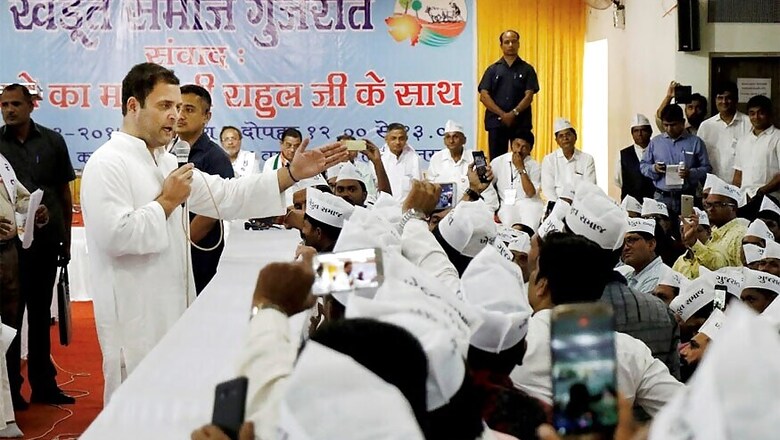
views
New Delhi: Congress' bid to wrest power from the BJP in Gujarat Assembly elections depended largely on the rural seats, support from Patidars, minorities and farmer communities. The party, however, failed in getting a majority, but ended up putting a tough fight with 77 seats in its bag.
But a post-result survey by Lokniti has projected that Congress did, infact, manage to get a substantial vote share from the communities it had earlier banked upon during the elections.
The party saw major gains in its vote share from the BJP's most loyal vote bank: Patel community, which constitutes 12-14 per cent of Gujarat's population.
Thirty six percent of the Patel votes went to Congress this time. In 2012 state elections, only 10 percent of the Patels had voted for the Congress party. The most number of votes from the community – 46% – came from Leuva Patels. This is a 31% increase from what the party got in 2012 state elections when only 15% of the Leuva Patels had voted for the Congress.
Kadwa Patels, another dominant community of the Patels, also voted for the Congress party in good numbers this time. The party managed to in get 27% of the Kadwa Patels votes, which is an increase of 18% in comparison to the 2012 state elections when only 9% of the Kadwa Patels voted for the Congress.
This increase in Patel vote share for the Congress party can be attributed to the Hardik Patel-led Patidar agitation, which started in July 2015.
The party also managed to get 39% vote share of the total Other Upper Caste electoral population of the State. This is a 13% increase from what the party got in 2012 state elections when 26% of Other Upper Caste electoral population voted for the party.
According to the numbers released by Lokniti, the party also saw good gains in its vote share from the Other Backward Class (OBC) community. The party managed to increase its total OBC vote share by 8%. Forty one percent of the OBC community votes went to the Congress this time in comparison to 33% during 2012 state elections.
The party, however, saw a slight drop in its vote share from the Muslim community, which forms its main vote bank. This time only 64% of the Muslim electoral population voted for the party, which is 6% less that the 2012 state elections when the party had managed to get 70% of the Muslim votes.
Surprisingly, this vote share loss for the Congress party from its trusted vote bank meant that the BJP increased its Muslim vote share from 20%, which it got during the 2012 state elections to 27% this time.
However, three Muslim candidates fielded by the Congress emerged victorious in the Gujarat Assembly elections this time. In 2012 also, two candidates from the minority community had made it to the Assembly on Congress' ticket.
The BJP had not nominated any candidate from the community.
The other main reason for the spirited fight Congress put in the state can also be attributed to the displeasure of the farmer with the BJP. The farmer anger against the BJP government was stoked by the Vijay Rupani government's inability to uphold its promise on minimum support price (MSP) for cotton and groundnuts.
The Rupani government had promised an MSP of Rs 1,500 per 20 kg of cotton. What farmers got was only around Rs 700. In Saurashtra, farmers sold groundnuts at Rs 3,500 per quintal as against Rs 4,500 that the government had promised as a procurement price.
This resentment against the government worked in favor of the Congress. The party saw significant rise in its vote share from the farmer community.
Fifty six percent of the big farmers community, 48% of the medium farmers community, 43% of small farmers community and 43% of the marginal farmers community voted for the Congress this time. This rise in Congress’ vote share had a direct impact on the BJP which witnessed a substantial decrease in its vote share from these farmer communities.
The aftershocks of this were felt heavily by the BJP. One of the big names to fall was Chimanbhai Dharamshibhai Sapariya, minister of agriculture and energy in the outgoing Vijay Rupani Cabinet.
Sapariya lost to Congress' Kalariya Chiragbhai Rameshbhai in Jamjodhpur constituency. While the BJP candidate polled 61,694 votes, his main opponent received 64,212.
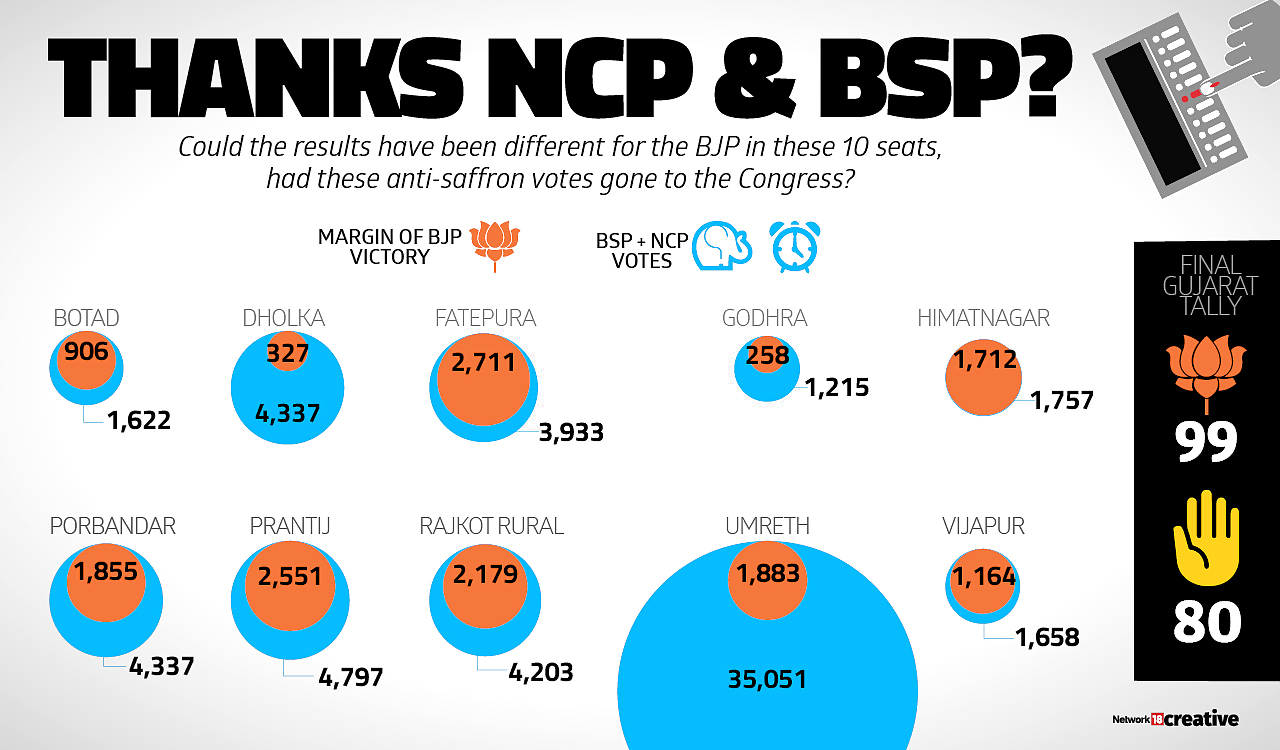














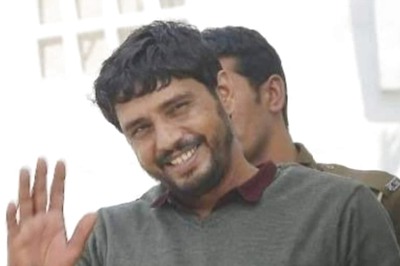
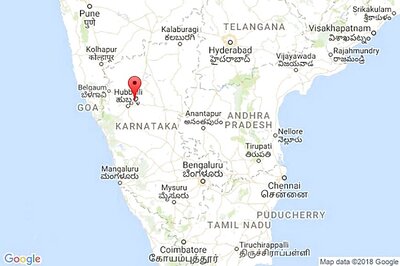

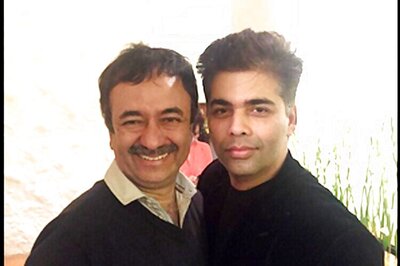
Comments
0 comment